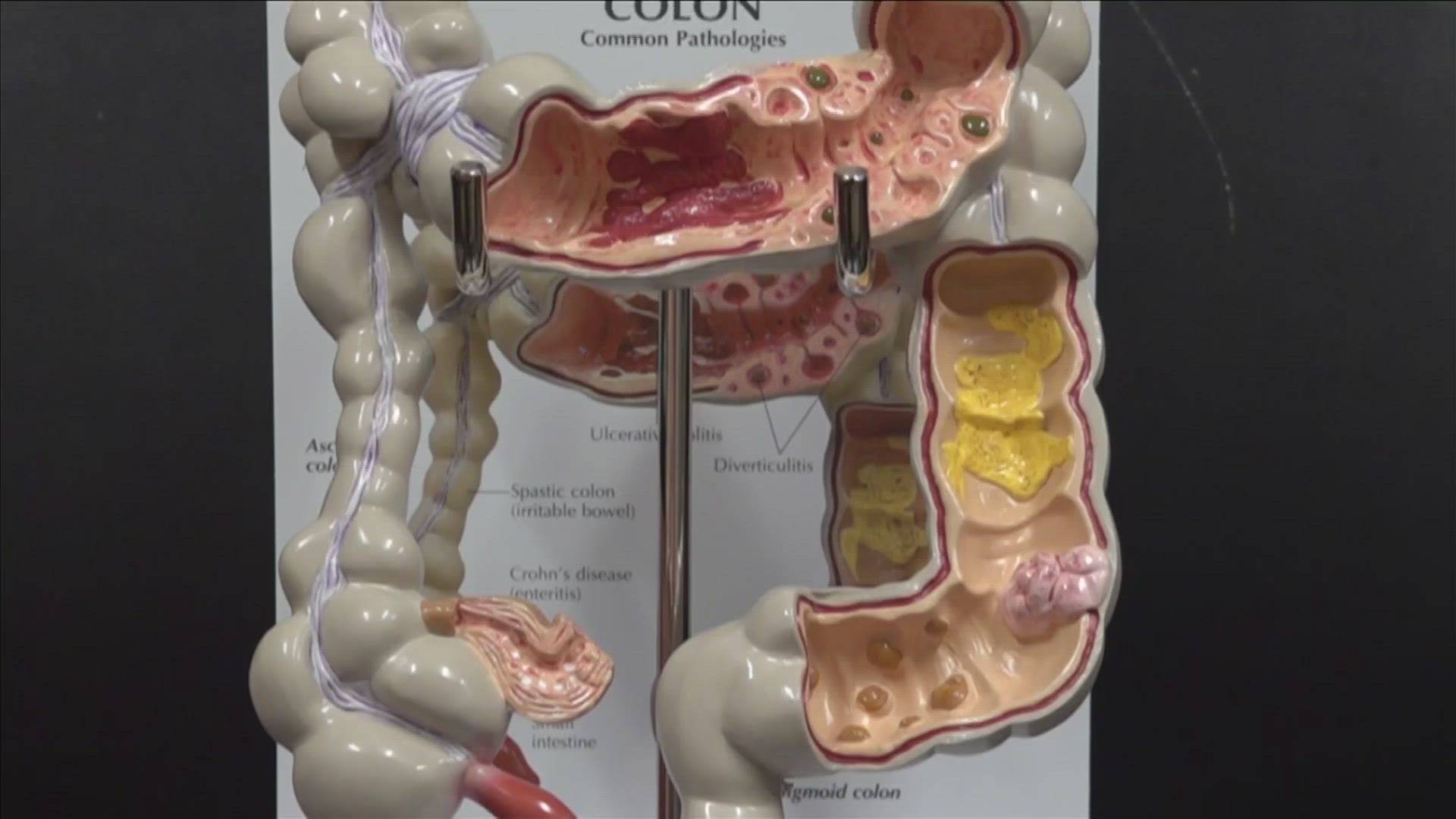MEMPHIS, Tenn. — March is Colorectal Cancer Awareness Month. Doctors recommend people get screened for colon cancer after turning 45.
“Prevention and early screening is absolutely vital for colorectal cancer,” said Dr. Moriah Wright, Colorectal Surgeon at Saint Francis Hospital.
“I found out that I had stage four rectal cancer … I was only given six months to live,” said Audrey Davis. “I wanted to give up. I did not want to live.”
The cancer diagnosis can be devastating and painful, but there is hope with early screenings.
“I’m 50 years old. The prime of my life. So when I found out that I had cancer I practically gave up. I really wanted to give up,” said Davis. “I am here because I love Dr. Wright. She helped save my life.”
“Knowing that we could save so many lives really is what helps us be passionate about getting the information out there, about the importance of colon cancer. How it affects your life and also the importance of getting screenings. So that hopefully you can never have colon cancer in the first place,” said Dr. Wright.
Colorectal signs and symptoms include blood in your stool, rectal bleeding, abdominal pain, distention, and changes in your bowel movements, such as constipation or diarrhea. Dr. Wright said the symptoms of colorectal cancer can vary depending on where the cancer is located.
“I was going through this in my 40s and I thought it was normal,” said Davis. “Pay attention to your body. Pay attention to your bowel movements.”
“We estimate that about 146,000 folks will be diagnosed with colorectal cancers this year. About 56,000 of those folks diagnosed with cancers will die this year from their colorectal cancer. Early screening would save about 40,000 additional lives,” said Dr. Wright.
Colonoscopies are relatively simple tests that allow doctors to look for colon cancer and remove polyps that have the potential to turn into cancer. Doctors can also check the stool for blood or abnormal DNA, which is less invasive.
“I had to take chemo and radiation every day for 16 weeks. After my chemo and radiation. I am in remission,” said Davis. “And I am just glad to be alive now. Nothing else matters. I’m just so glad to be here. He’s giving me another day, so I’m just going to live it. Whatever happens just happens.”
Dr. Wright said data shows a high fiber diet, 25-30 grams per day, can help reduce the chances of colorectal cancer. According to the doctor, the fiber in a person’s diet feeds the cells in their colon and keeps those cells happy. Dr. Wright said if supplements need to be taken, that is fine. But she warns for every five grams of fiber, a person should drink an extra eight ounces of water to avoid constipation.
“I was given six months to live and it’s 2023 and I am still here. So, just listen to your body,” said Davis.

